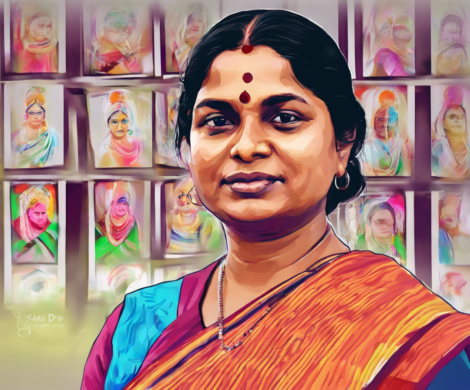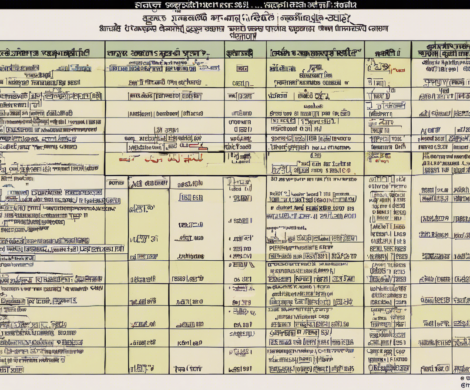Decoding the Controversial Prajwal Revanna Video Scandal
The recent Prajwal Revanna video scandal has sent shockwaves across the political landscape in India, sparking debates and controversies. The incident has raised questions about privacy, morality, and the impact of social media in today’s society. Let’s delve deeper into the issue and analyze the various aspects surrounding the controversy.
Understanding the Prajwal Revanna Video Scandal
Prajwal Revanna, a prominent political figure in Karnataka, found himself embroiled in a scandal when a video allegedly showing him engaged in inappropriate behavior went viral on social media. The video quickly spread like wildfire, garnering attention from the public, media, and political opponents.
Privacy Concerns: The incident sparked a debate on the right to privacy of public figures. Many argued that public figures have a right to privacy and should not be subjected to such invasions. Others contended that public figures, by virtue of their position, should be held to a higher standard of accountability.
Impact on Political Career: The scandal had immediate repercussions on Prajwal Revanna’s political career. His reputation took a hit, and he faced backlash from both supporters and detractors. The incident raised questions about the impact of such scandals on the credibility and trustworthiness of politicians.
Social Media’s Role: The rapid spread of the video highlighted the power of social media in shaping public opinion and influencing discourse. The incident underscored the need for responsible use of social media and the challenges of controlling information dissemination in the digital age.
Legal Implications and Consequences
Defamation Laws: The video scandal raised concerns about defamation laws and the legal implications of spreading malicious content. Individuals found sharing the video could potentially face legal action for defamation, invasion of privacy, or spreading false information.
Cybersecurity: The incident also emphasized the importance of cybersecurity and the need for enhanced measures to protect individuals’ data and privacy online. It shed light on the vulnerabilities of digital platforms and the risks associated with sharing sensitive information online.
Repercussions on Society: The scandal had wider implications for society, highlighting issues of morality, ethics, and the impact of sensationalism on public discourse. It served as a cautionary tale about the dangers of unchecked social media usage and the need for digital literacy.
Navigating Ethics and Morality in Politics
Accountability and Transparency: The scandal underscored the importance of accountability and transparency in politics. Public figures are expected to uphold ethical standards and be held accountable for their actions, both in their personal and professional lives.
Public Perception: The incident also shed light on the role of public perception in shaping political narratives. Public figures, including politicians, are subject to intense scrutiny, and their actions can have far-reaching consequences on their careers and public image.
Building Trust: Upholding ethical standards and demonstrating integrity are essential for building trust with the public. The scandal served as a reminder of the fragility of public trust and the need for politicians to act with honesty and integrity to maintain credibility.
Conclusion
The Prajwal Revanna video scandal serves as a cautionary tale about the complexities of navigating privacy, ethics, and morality in a digital world. It calls for deeper reflection on the implications of such incidents on individuals, society, and the political landscape. As we grapple with the fallout of the scandal, it is imperative to uphold values of integrity, transparency, and respect for privacy in all aspects of public life.
Frequently Asked Questions (FAQs)
- What legal actions can Prajwal Revanna take against those who shared the video?
-
Prajwal Revanna can take legal action for defamation, invasion of privacy, and spreading false information against individuals who shared the video without his consent.
-
How can public figures protect their privacy in the age of social media?
-
Public figures can take measures such as being cautious about their online presence, using secure communication channels, and seeking legal recourse in case of privacy violations.
-
What role does the media play in shaping public perception during such scandals?
-
The media plays a crucial role in shaping public perception by influencing how a scandal is portrayed and disseminated to the public. Ethical reporting and responsible journalism are key in such situations.
-
What steps can be taken to prevent the spread of sensitive content on social media?
-
Social media platforms can implement stricter content moderation policies, users can exercise discretion before sharing content, and legal institutions can take action against those spreading sensitive material.
-
How can individuals differentiate between genuine information and malicious content online?
- Individuals can verify the authenticity of information from multiple sources, fact-check before sharing, and be wary of sensationalized or misleading content on social media platforms.






